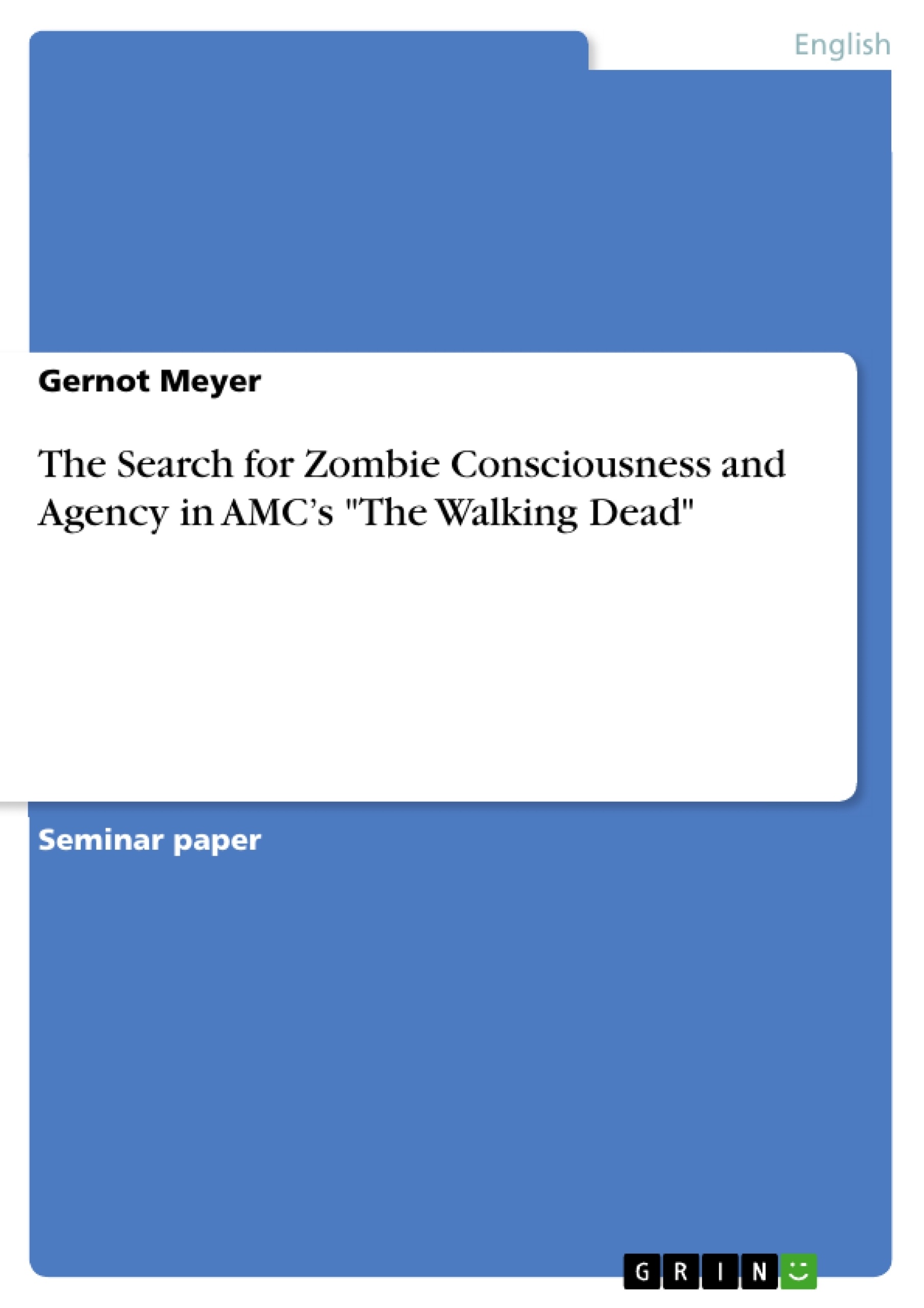Zombies are - considering the significant amount of media input – nearly all around us. What was once a niche genre, has long spread and entered the public consciousness and pop culture through a variety of movies and, more recently, through one very successful TV series adaption of a comic series, "The Walking Dead" (2010) and its recent spinoff, "Fear the Walking Dead" (2015). Video game series like Left 4 Dead or Dead Island likewise increased the ever-growing stack of zombie productions. And whereas there were few or no academic works specifically about zombies in the past, there is now a considerable part of academia that explores and observes the zombie from many different angles. There are works which examine the zombie culture according to philosophical, religious, historical, political or even environmental points of view.
One issue that is being explored in these works is the question of humanity and how much of it is still contained in a zombie. As zombies are still able to fulfill basic human functions such as eating or walking, this inevitably leads to questions of human and zombie consciousness. If a person is “zombified”, does he or she still have access to the feelings of the person that was bitten? Can these feelings be accessed and influence the zombie’s behavior? Or will a zombie always act like a mindless machine, never stopping and never settling for any less than human flesh?
This paper seeks to explore the questions mentioned above by analyzing scenes from the first, second and third season of AMC’s TWD. I will first (Chapter 2) seek to explore how alive and conscious the living dead actually are, essentially ask, how much of a human there is still in them. I will first introduce neuroscientific/biological ideas to discuss how “active” a zombie’s brain is and later add neurobiological and philosophical input about consciousness. These thoughts, with an emphasis on the neuroscientific/biological theories, will provide the background for the analysis (Chapter 3): There I will analyze a selection of scenes from TWD’s first three seasons and investigate how the series portrays the zombies’ level of consciousness and agency. Finally, I will conclude my findings.
Inhaltsverzeichnis (Table of Contents)
- Introduction
- Zombie Consciousness and Science
- Analysis
- Conclusion
Zielsetzung und Themenschwerpunkte (Objectives and Key Themes)
This paper aims to explore the question of zombie consciousness and agency in AMC's "The Walking Dead" by analyzing scenes from the first three seasons. It examines the extent to which zombies retain human characteristics and how their actions reflect a level of consciousness or agency.
- The nature of zombie consciousness and the potential for human remnants within the zombie state
- The role of neuroscience and biology in understanding the zombie brain and its functions
- The portrayal of zombie behavior and agency in "The Walking Dead"
- The evolution of zombie lore from metaphysical explanations to more scientific justifications
- The distinction between brain-death and zombie states
Zusammenfassung der Kapitel (Chapter Summaries)
- Introduction: This chapter introduces the topic of zombie consciousness and its relevance in contemporary popular culture. It discusses the growing body of work exploring zombies from various perspectives and highlights the question of human remnants in zombies. The paper outlines its methodology and the specific aspects of zombie consciousness it will analyze.
- Zombie Consciousness and Science: This chapter explores the scientific aspects of zombie consciousness, drawing on neuroscientific and biological perspectives. It examines the potential for brain activity in zombies, contrasting their behavior with that of brain-dead individuals. The chapter also delves into the historical origins of the zombie concept and its connection to real-world practices. It concludes by introducing the concept of "zombie agents" as a potential explanation for some zombie actions.
Schlüsselwörter (Keywords)
This paper focuses on the key concepts of zombie consciousness, agency, neuroscience, biology, "The Walking Dead," human remnants, and brain-death. It examines the portrayal of zombies in popular culture and explores the potential for scientific explanations of zombie behavior.
- Quote paper
- Gernot Meyer (Author), 2017, The Search for Zombie Consciousness and Agency in AMC’s "The Walking Dead", Munich, GRIN Verlag, https://www.grin.com/document/355050




